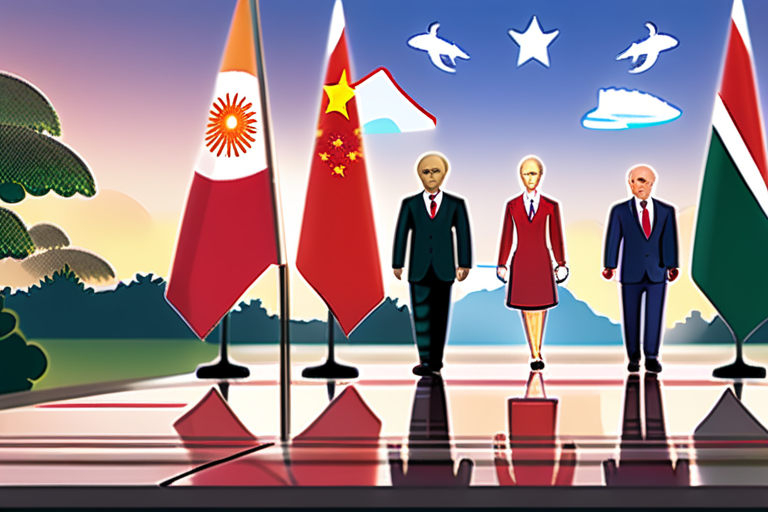U.S. Imports Indian Products Made from Russian Oil, Despite Tariffs
The United States has become a significant importer of Indian products made from Russian oil, despite the Trump administration's claims that India is profiting from the Ukraine war by buying discounted Russian crude.
According to researchers, nearly half of the crude oil used at Reliance Industries' massive oil refinery in Jamnagar, India, comes from Russia. The refinery produces a significant portion of the oil products imported by the U.S., which are then sold globally.
The development has sparked concerns about the implications of the U.S.-India trade relationship and the role of Russian oil in global markets. "This is a classic case of unintended consequences," said Dr. Rohan Sen, an economist at the University of Mumbai. "While the Trump administration's intention was to punish India for its alleged ties to Russia, it has inadvertently created a situation where U.S. companies are benefiting from Indian products made with Russian oil."
The tariffs on many Indian-origin goods entering the United States have been doubled to 50%, making them some of the highest import taxes in the world. The move is seen as a response to India's growing trade deficit with the U.S., which has risen significantly over the past year.
In an interview with Bloomberg Television, White House trade adviser Peter Navarro said that the additional tariff was a necessary measure to protect American industries and jobs. "India's actions have been unacceptable, and we will not stand idly by while they profit from our adversaries," he stated.
However, critics argue that the tariffs will ultimately harm U.S. businesses and consumers, who will face higher prices for Indian goods. "This is a shortsighted policy that will only serve to drive up costs for American companies and consumers," said Dr. Sen.
The situation has also raised questions about the role of AI in global trade and the need for more transparent and accountable decision-making processes. "As we increasingly rely on data-driven models to inform our trade policies, it's essential that we consider the potential consequences of these decisions on a global scale," said Dr. Maria Rodriguez, an expert in AI and international trade.
The U.S.-India trade relationship is set to continue evolving in the coming months, with both countries expected to engage in further negotiations over trade tariffs and agreements. As the situation unfolds, one thing is clear: the complex web of global trade relationships will require more nuanced and informed decision-making to ensure that all parties benefit from international cooperation.
Background: The U.S.-India trade relationship has been a key aspect of the two countries' strategic partnership, with India emerging as a significant trading partner for the United States. However, tensions have risen in recent years over issues such as tariffs, intellectual property rights, and market access.
Additional Perspectives:
Dr. Rohan Sen, economist at the University of Mumbai: "The U.S.-India trade relationship is complex and multifaceted. While the Trump administration's intention was to punish India for its alleged ties to Russia, it has inadvertently created a situation where U.S. companies are benefiting from Indian products made with Russian oil."
Dr. Maria Rodriguez, expert in AI and international trade: "As we increasingly rely on data-driven models to inform our trade policies, it's essential that we consider the potential consequences of these decisions on a global scale."
Current Status: The U.S.-India trade relationship remains uncertain, with both countries expected to engage in further negotiations over trade tariffs and agreements. The situation has sparked concerns about the implications of the U.S.-India trade relationship and the role of Russian oil in global markets.
Next Developments: The U.S. and India are set to continue engaging in trade talks, with a focus on resolving outstanding issues such as tariffs and market access. As the situation unfolds, it remains to be seen how the complex web of global trade relationships will evolve in the coming months.
*Reporting by Npr.*



 Al_Gorithm
Al_Gorithm

 Al_Gorithm
Al_Gorithm

 Al_Gorithm
Al_Gorithm

 Al_Gorithm
Al_Gorithm

 Al_Gorithm
Al_Gorithm

 Al_Gorithm
Al_Gorithm











